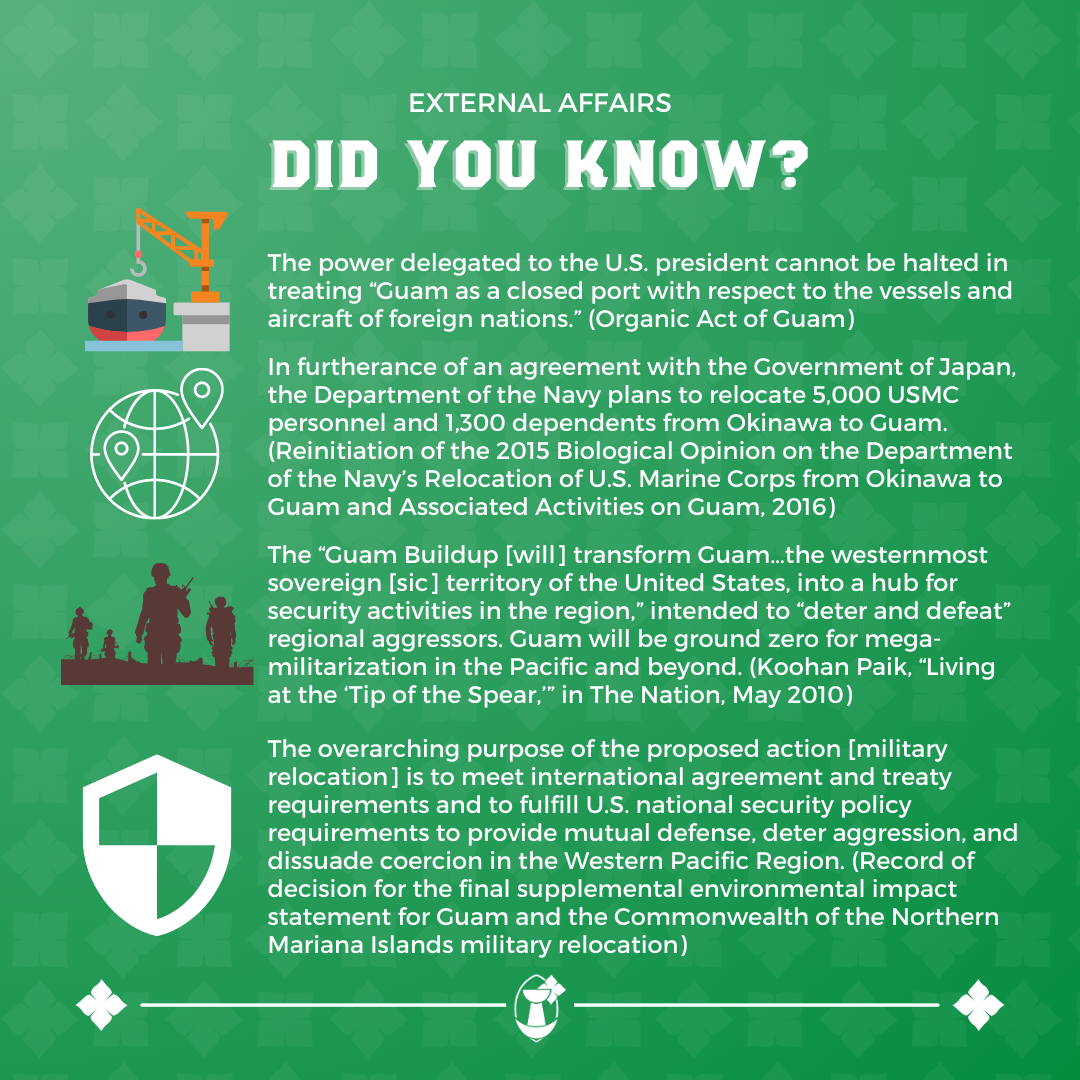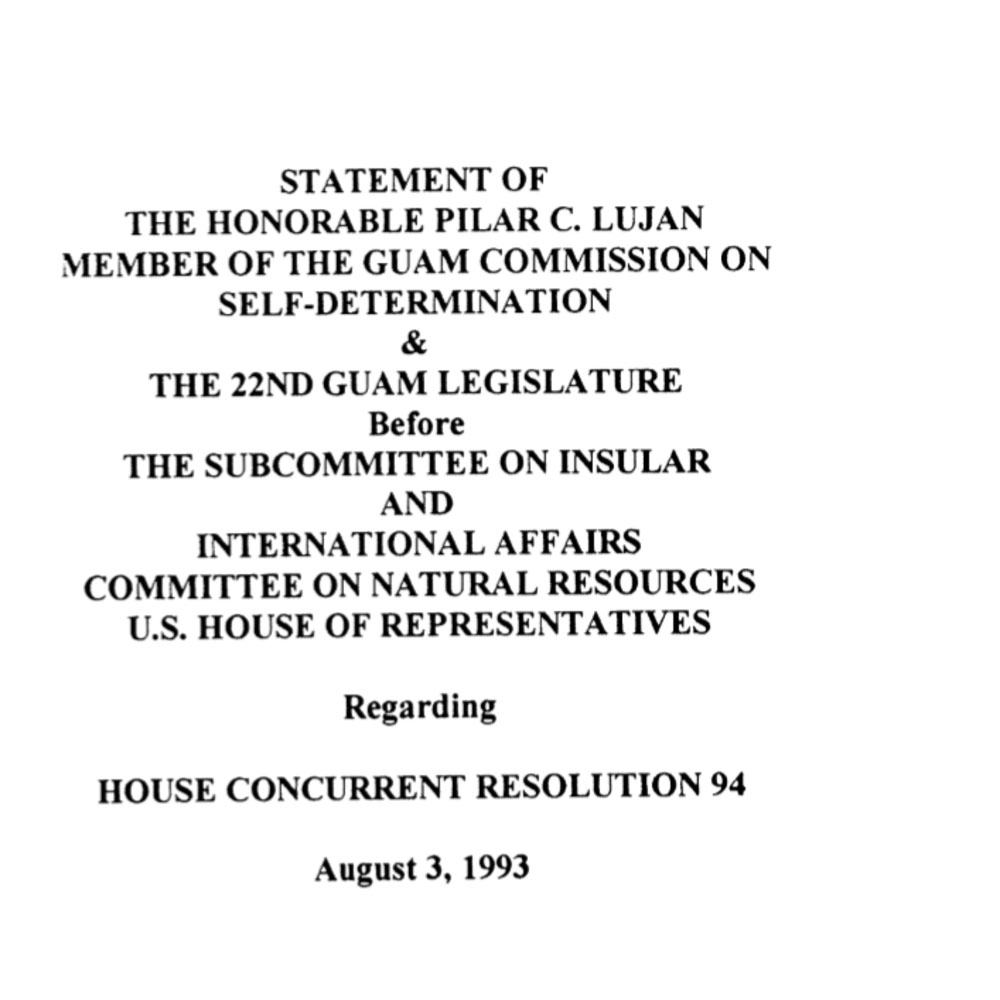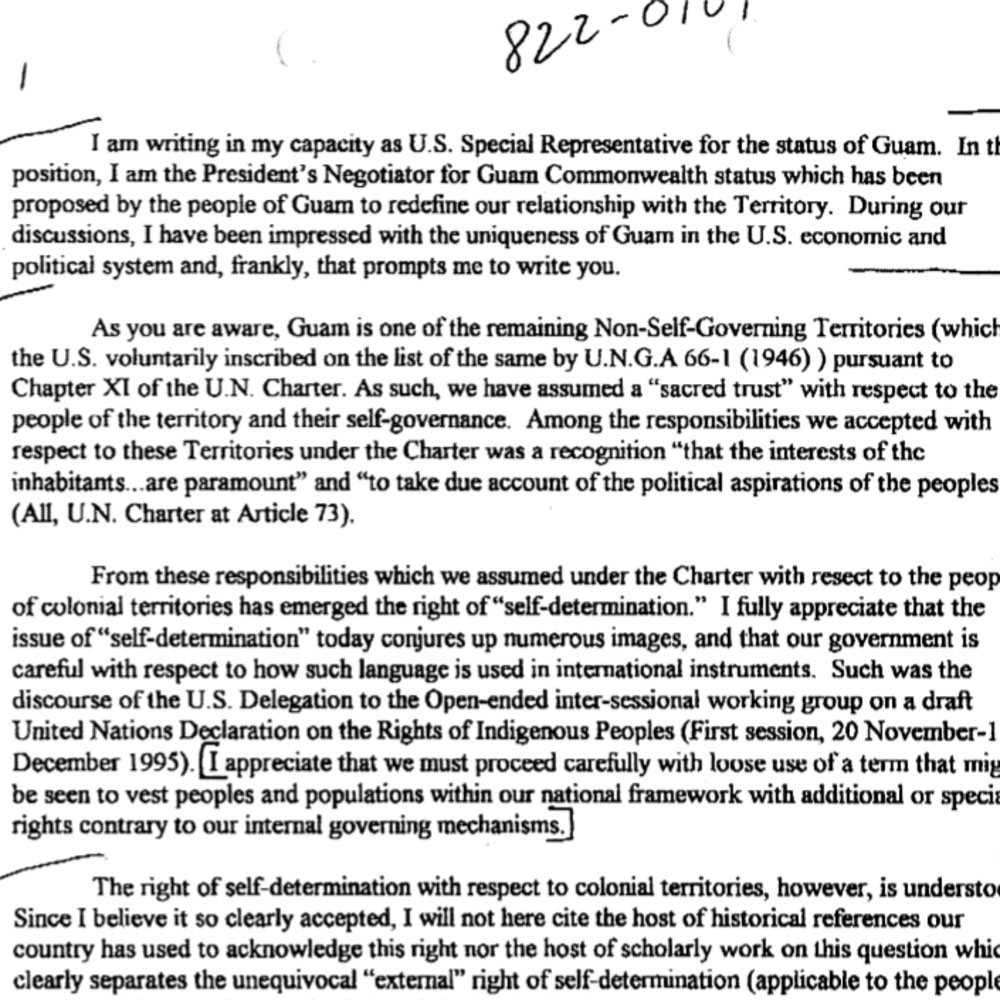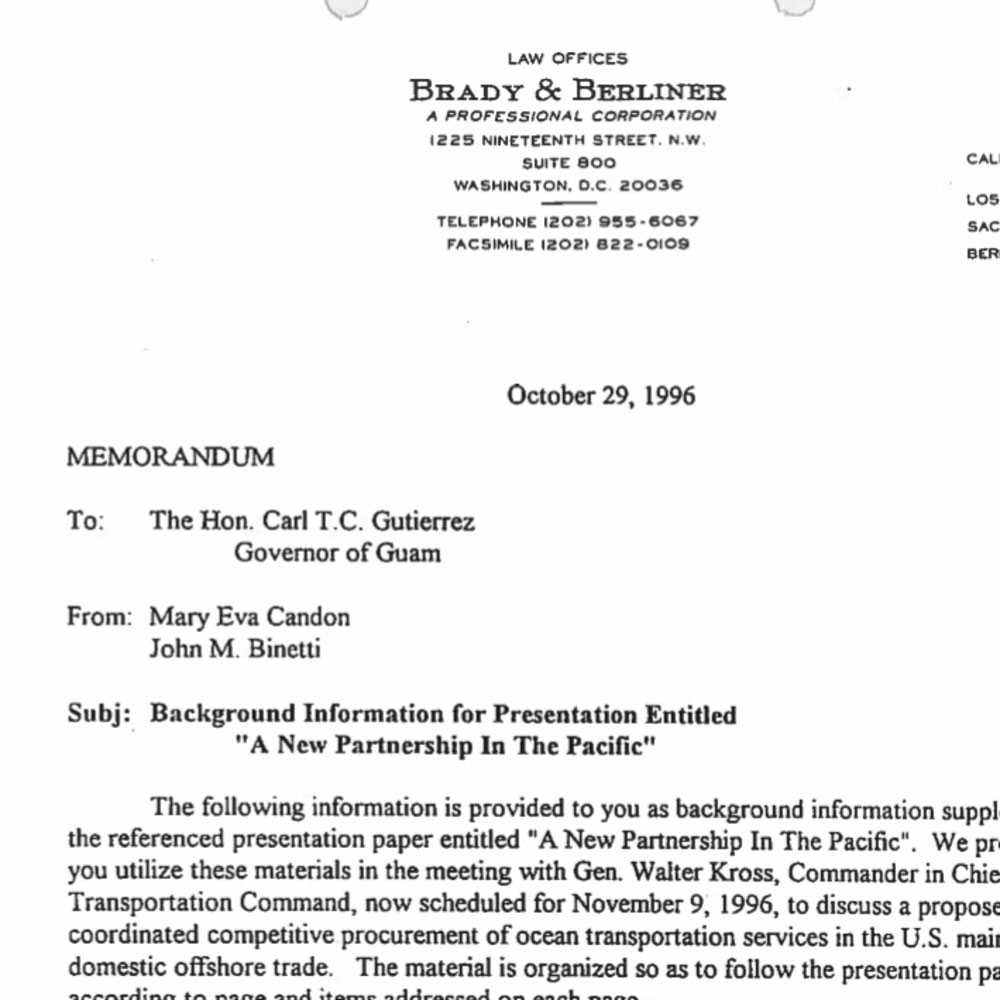Giha Mo'na External Affairs and Defense
External Affairs refers to the relationships Guam has with regional and international actors. This can include matters of immigration, trade, and Guam’s participation in international organizations.
The Government of Guam does not have the ability to establish relationships or make agreements with governments in the region or internationally. This is because all external affairs of the territory of Guam are controlled by the United States. This also means that Guam is implicated in all of the United States’ external affairs.
About External Affairs in Guam
As a non self-governing territory under the administering power of the United States, Guam does not have a seat in international organizations like the United Nations nor does the government have the power to enter into treaty agreements with other countries. To the international community, Guam is part of the United States although U.S. domestic law says otherwise. Guam’s status limits the platforms on which the people can present critical issues facing the island like climate change, immigration, and indigenous rights to the regional and international community. As a result of Guam’s lack of control over external affairs, decisions surrounding matters such as reunification with the Northern Mariana Islands requires Congressional approval.
Did You Know
FURTHER READINGS ON EXTERNAL AFFAIRS IN GUAM




